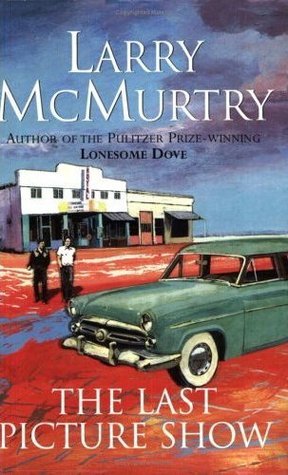Title: The Last Picture Show
Rating: 4 Stars
About a year and a half ago or so, I watched The Last Picture Show. I wrote about it here. For some reason, I started thinking about it again and decided to give the novel a shot.
The film adheres closely to the novel. This is the story of Sonny and Duane, high school seniors, living in a very small town in Texas in the early 1950s. This is also the story of Jacy, the belle of the town (and girlfriend of the high school football star Duane). As all three navigate graduating high school and getting ready to be full fledged adults, you see how lost they all are. Their small town, Thalia, has nothing for them. There really is nothing to do. There are no prospects. They are looking at adulthood, and all around them are adults that are themselves, at best, unhappily struggling.
Since it is a novel and not a feature film, it can go into all of this in much more depth. To put it mildly, it does.
There’s a certain group of people that, if you asked them when and where the US was really great, they would say that it would be in the 1950s in small town America. There weren’t people with long hair protesting or taking drugs. Children were polite and only spoke to their elders with deference. People had morals then. There wasn’t all of this rampant sexuality that you see today. The civic leaders provided moral leadership. People looked after each other. People that live in small towns are the salt of the earth, somehow superior to those living in the crowded, cramped cities. This is the heartland of America where real Americans live.
The Last Picture Show takes each of these beliefs and rips them apart. McMurtry was born and raised in a small Texas town in the 1950s. Published in 1966, it was written at a time when his memories of small town living must have been still very fresh.
The novel rips apart small town living. Most everyone lives in poverty. Paid weekly, Duane and Sonny regularly run out of money and have to spend part of their last day living off of Butterfingers. They don’t have much prospects to climb out of poverty. The adults are not in a much better state. Genevieve, the diner’s waitress, is only working because of an injury to her husband. Sonny’s father is reduced to living in a hotel room. Knowing how much his father needs money, Sonny refuses to accept any money that his father offers him.
There is nothing to do in this small town. The only places to hang out are the pool hall, the diner, and the movie theater. Desperate to find something new to do, Duane and Sonny buy alcohol, drive around, and occasionally get in fights.
Probably because of boredom, the young men of the town are almost thoughtlessly cruel. They constantly torture the goody two shoes Joe Bob Blanton, regularly stripping off his underwear and other indignities. They brutally prank the good-natured, simple minded Billy.
Those few that are different are punished. The effete English teacher, Mr Cecil, is, based upon no evidence other than the way he looks, accused of being gay. Without even so much as a discussion, the school superintendent immediately fires him. Mr Cecil’s wife leaves him and takes the children. It’s unstated but the irony is that the chief accuser, the football coach, if anyone, appears to be the person acting most inappropriately to young men. Joe Bob Blanton, forced by his father to become a minister ends up so sexually repressed that he ends up accused of and arrested for molesting a child. His father uses his son’s arrest to preach a real stem-winder of a sermon.
Even though high school girls are taught to rigidly protect their virginity, sex is rampant in the town. Duane and Sonny frequent a brothel when they go to Mexico. They do so again when they spend their last night together in Fort Worth. Even more disturbingly, a group of high school boys go to a barn yard where they commit acts of bestiality upon a blind calf. Instead of being ashamed, the boys look upon all of this as high adventure. Only Sonny, upon whom much of the novel is focused upon, is repulsed. When Jacy does lose her virginity, it is painful and awkward. True to Jacy’s personality, she immediately figures out to use her new found sexuality to manipulate the young men.
There is a sadness to growing old in a small town. The 40ish sexually repressed wife of the football coach, Ruth, comes to life when she is able to seduce the teenage Sonny. While their affair progresses, Ruth blooms. Later, Jacy beckoned her little finger to Sonny and he dropped Ruth like a hot potato, breaking her heart and driving her to depression. After Sonny realizes that Jacy was just manipulating her, he comes crawling back to Ruth. Ruth, wanting to hate him, cannot.
In its explicitness, the novel reads almost like pulp fiction. In laying bare the emptiness of small town life, for some reason I thought of Less Than Zero, Bret Easton Ellis’ novel about the vacuous life of teenage life in 1980s LA. In both novels, there is almost a form of nihilism to the characters. They care about nothing and have nothing to live for. They search for meaning where there is only meaninglessness.
